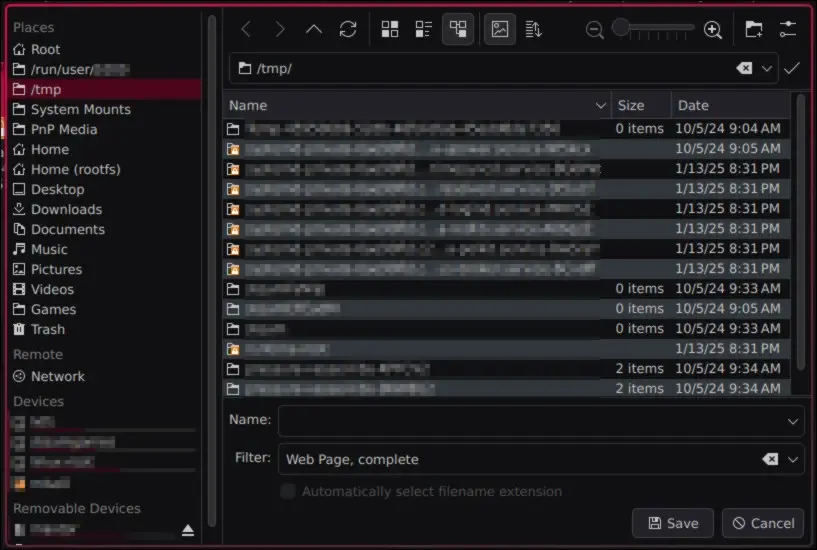

2 Samuel 3:14
It’s a nice verse about calculating the area of a circle, I swear


2 Samuel 3:14
It’s a nice verse about calculating the area of a circle, I swear


Pantheon deserved better.
I wouldn’t ever have known it existed if I didn’t find the first season on aniwave of all places…
Unfortunately I have to do both ;n;
… or at least I will have to when I try to get my homemade game engine working on Windowsintoyourbrowsinghistory 11


I’ve never played The Crew nor The Crew 2, but I hate this guilt-by-association type of argument with every fiber of my heart.
Not because it defends Ubisoft (in this case), but because it completely accepts the asshole’s premise that the successor of a product is necessarily a valid substitute for the product itself, and the latter is not worth keeping around - it’s like eating an apple that has been cooked in an oven at 300°C for 5 hours, then arguing that apples are bad for your health.
See:
Yes, but you need to accept all cookies when prompted


That is an extremely oddly specific cysec issue they’re choosing to target…


Can’t ever have anything nice, huh.


Easy fix, barely an inconvenience: make it illegal


I think GNOME’s filechooser is the GTK one (never used it so I’m not sure), mine looks like this:

It’s entirely possible that Firefox changed and now uses XDG portals by default, I configured it like this a long time ago.
As for how to configure it, I honestly don’t know.
It was a combination of messing with widget.use-xdg-desktop-portal on about:config, and changing XDG envvars and dotfiles; both by following several conflicting Reddit and bbs.archlinux.org posts.


XDG portal filechooser for Firefox: the KDE implementation uses Dolphin, which is full of features and I use most of them; the default GTK one is mildly infuriating to use and looks ugly too, but getting the browser to use the portal I want was a nightmare - especially since GTK discontinued the GTK_USE_PORTAL envvar.
The related Firefox config entries make no sense either.


Here it is:
#!/usr/bin/zsh
nl=$'\n'
dnl=$'\n\n'
url=$1
msgcontent=$url; shift
argi=1
for arg ($@); do
argi=$(($argi + 1))
msgcontent=${msgcontent}${nl}Argument\ ${argi}': '${arg}
done
title="${0:A}"
msg="An application attempted to open a web page:${dnl}\"${msgcontent}\"${dnl}Copy the URL to clipboard?"
kdialog --title $title --yesno $msg
answer=$?
if [[ $answer = 0 ]]; then wl-copy $url; fi
If you want to translate it to Bash, keep in mind that arrays behave differently between the two shells, and syntax like for arg ($@); do would likely misbehave or not work at all.
Also, there’s an issue where some applications do something weird, and the URL seems to be a zero-length argument. I have absolutely no idea what’s up with that.


You can set some browser-unrelated program or script as your desktop environment’s default browser, for example I wrote a Zsh script that creates a KDE dialog and asks me to copy the URL to the clipboard.
I’m not currently at my PC, but if you want it I can paste it in a comment here when I get to it - it shouldn’t be too hard to translate it to Bash, either.
Other than that? /usr/bin/true is a pretty nice default browser for applications to start without your consent, very minimal and lightweight.


Oh, std::enable_if is straight up worse, they’re unreadable and don’t work when two function overloads (idk about variables) have the same signature.
I’m not even sure enable_if can do something that constraints can’t at all…


I imagine reflections would make the process more straightforward, requires expressions are powerful but either somewhat verbose or possibly incomplete.
For instance, in your example foo could have any of the following declarations in a class:
void foo();int foo() const;template <typename T> foo(T = { }) &&;decltype([]() { }) foo;No, that’s Vim


Yeah, that’s what I was thinking of. I don’t know how C++ could reasonably have Java-like reflections anyway…


Wouldn’t compilers be able to optimize runtime things out? I know that GCC does so for some basic RTTI things, when types are known at compile time.


I can see the footguns, but I can also see the huge QoL improvement - no more std::enable_if spam to check if a class type has a member, if you can just check for them.
… at least I hope it would be less ugly than std::enable_if.


Java²script
I saved this post hoping for a useful answer,
alsaalas, there seems to be none.I’m not an audiophile so I’m more or less spreading misinformation, but I think you’re looking to configure ALSA’s device gain rather than going through pipewire.
kusivittulahere mentionedalsamixer, and I found a StackExchange answer saying that you can save its current state usingalsactl store(withsudoor write access to/var/lib/alsa/asound.state).Alternatively, you can edit
/var/lib/alsa/asound.stateyourself.It doesn’t work if your problem involves audio streams (so *I* am SOL), but making changes through alsamixer seems to lower my headset’s volume so that I can comfortably set it to 100% through wireplumber - I imagine that would also apply to mic gain.